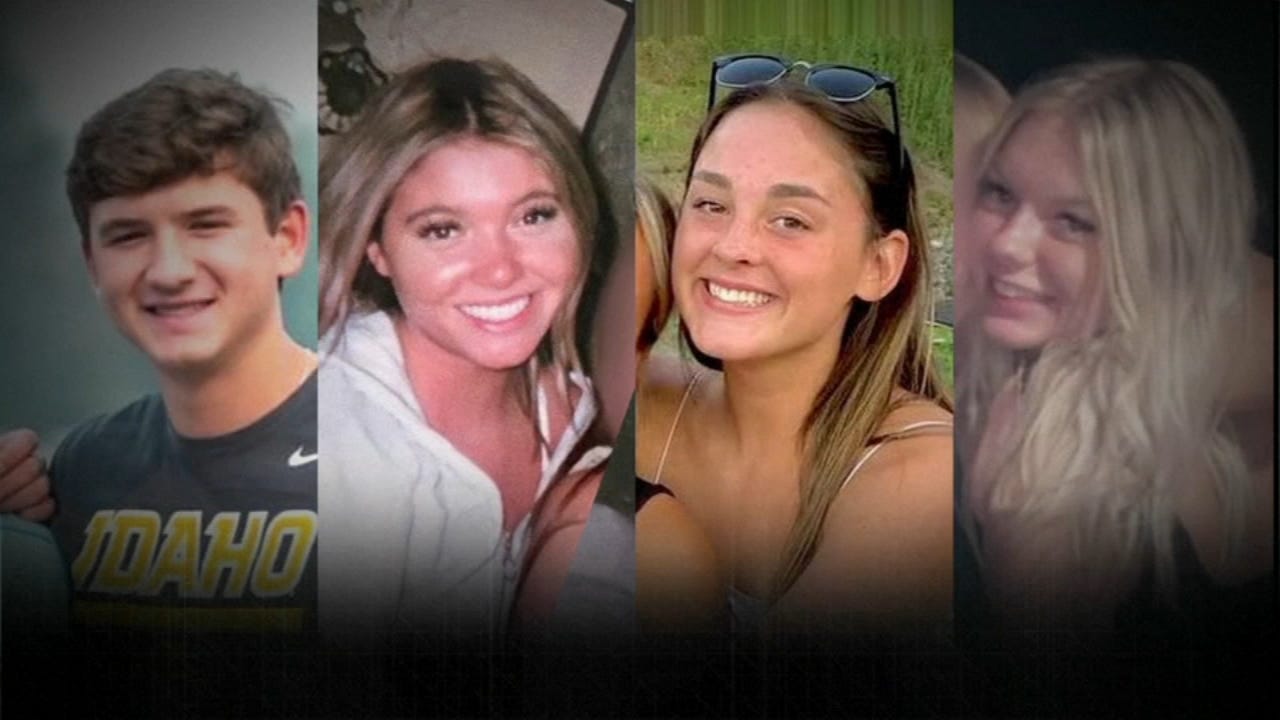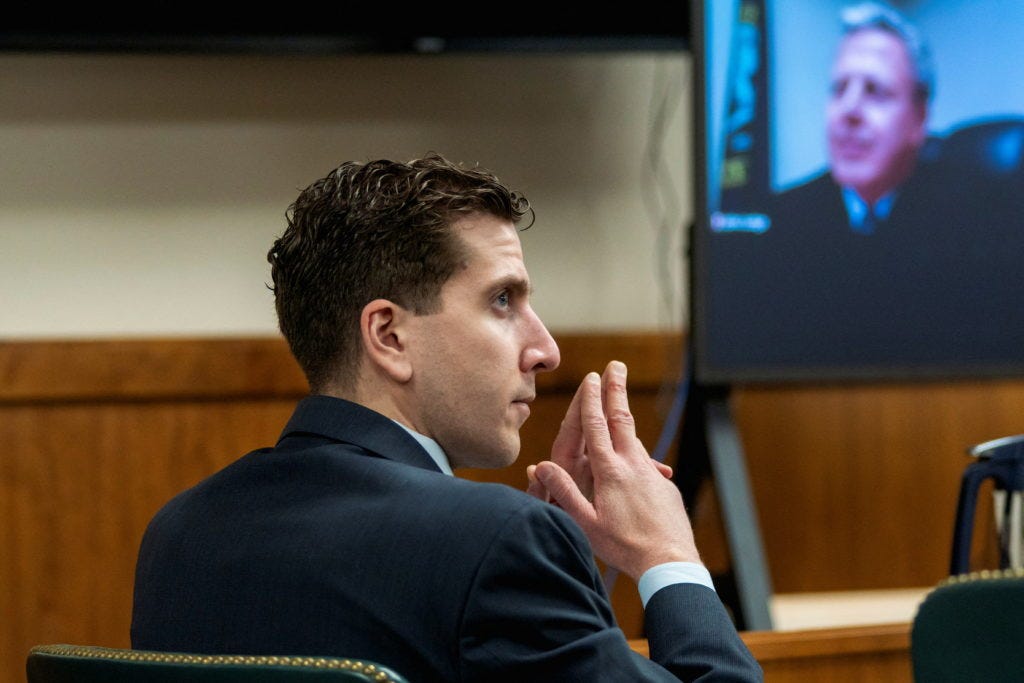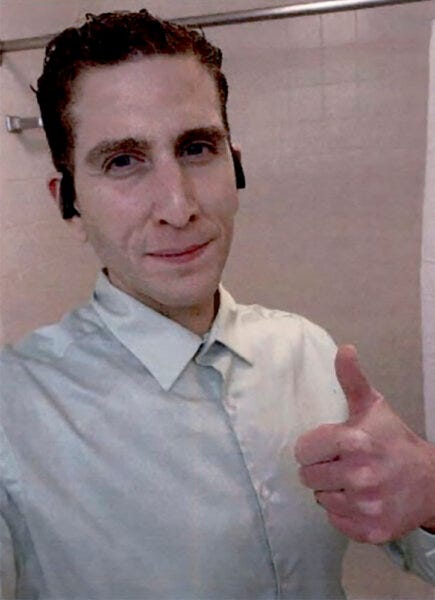Why Bryan Kohberger is Lucky to get a Plea Deal
A plea deal is the coward's easy way out, a pathetic escape for someone too afraid to face the consequences.
Bryan Kohberger, the sole suspect in the tragic 2022 murder of University of Idaho students Kaylee Goncalves, Ethan Chapin, Xana Kernodle, and Madison Mogen, has unexpectedly accepted a plea deal instead of facing trial. The trial, which was set to begin next month, has captured national attention.
Kohberger’s defense team has exhausted every possible option, attempting to prevent prosecutors from pursuing the death penalty. They argued on grounds of decency standards, international law, improper evidence presentation, and even cited his autism diagnosis to reduce culpability. They also challenged the validity of key DNA evidence and sought to introduce doubts about whether someone else could have committed the crime.
Despite these efforts, all have failed. This highlights the strength of the evidence against Kohberger and the seriousness of the crimes. His DNA was located on the knife sheath, cell-site data placed him near the crime scene, and video footage and purchase records directly implicate him. With acquittal nearly impossible, a plea prevents unnecessary motions and contested hearings. His decision to accept a plea deal is a clear indication of the overwhelming case built against him and the pursuit of justice for the victims and their families.
Accepting this plea deal entails Kohberger's admission of guilt to four separate counts of first-degree murder. In accordance with the agreement, he will be sentenced to four consecutive life terms without the possibility of parole, in addition to up to ten years for the burglary charge. Notably, this plea deal ensures that he will be spared the death penalty, which was the prosecution's initial objective. By choosing to accept the plea, he effectively forgoes all post-conviction appeals, thereby avoiding prolonged and costly legal battles that can be emotionally taxing for all parties involved. This decision also enables a more rapid resolution of the case, providing a measure of closure for the victims' families and reducing the strain on the justice system.
A quick resolution, instead of a lengthy trial, helps reduce the emotional burden on grieving families and prevents them from experiencing additional trauma in the courtroom, except that the families of the victims have mixed reactions about this plea.
Ethan Chapin's family expressed support for the deal, according to spokesperson Christina Teves, who spoke today. Lawyer Leander James, representing Madison Mogen’s mother and stepfather, declined to share their opinions but said he would issue a statement after Wednesday’s hearing. Madison Mogen’s father, Ben Mogen, told CBS News he felt relieved about the agreement. In contrast, the Goncalves family reacted with outrage, posting statements on Facebook criticizing the deal and urging supporters to contact the Ada County Courthouse if they felt compelled to make a difference. “We are beyond furious at the State of Idaho,” the family wrote Monday. “They have failed us.”
In another post today, they added: “We stand strong that it is not over until a plea is accepted. We will not stop fighting for the life that was stolen unjustly. ... At a bare minimum, please - require a full confession, full accountability, location of the murder weapon, confirmation the defendant acted alone, & the true facts of what happened that night. We deserve to know when the beginning of the end was.”
During the plea hearing, Kohberger must admit to his crimes, though he probably won't explain his motive, according to Idaho defense attorney Edwina Elcox, speaking to NY The Post. He needs to confirm the key elements of the crime, such as the dates and locations, and admit to the killings. However, “he wouldn’t have to say why he did it — just that he did it,” Elcox clarified. She also noted that "there is no requirement that he says why for a plea.”
Bryan Kohberger, cornered by strong evidence of his guilt, accepts this deal to avoid the death penalty—possibly by firing squad in Idaho—without having to fully answer for his crimes. He won't need to explain why, which I believe is the question everyone is asking. Why?
There has been no clear explanation for the heartbreaking 2022 Idaho killings. Prosecutors, defense attorneys, and media reports all recognize this unsettling lack of answers, leaving families and the public to live with painful questions.
Some commentators have pointed out the unusual details of Kohberger’s background—a criminology PhD student who studied criminal behavior, forensics, and psychology—yet no credible link has been established between his academic pursuits and the decision to take the lives of four strangers.
The case’s shocking aspects feel more like a dramatization from true-crime stories than anything based on personal grievances. Mental health diagnoses such as obsessive–compulsive disorder and autism spectrum disorder were mentioned in pretrial documents, but experts emphasize these conditions alone do not lead to violence. Courts usually reject simplistic links between neurodivergence and criminal behavior, and Kohberger’s legal team was never able to connect his diagnoses to a motive.
Investigators have found no evidence of a prior relationship between Kohberger and his victims, nor any signs of specific targeting or hatred. Surveillance footage, forensic evidence, and cell-site data place him at the scene, but they only explain "how" the crime was committed, not why. Without a confession or convincing evidence of intent, the question of motive remains unanswered and may never be fully understood.
A plea deal is the coward's easy way out, a pathetic escape for someone too afraid to face the consequences.




